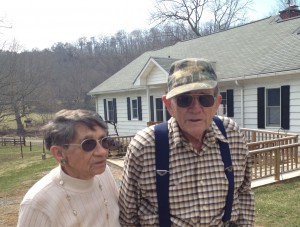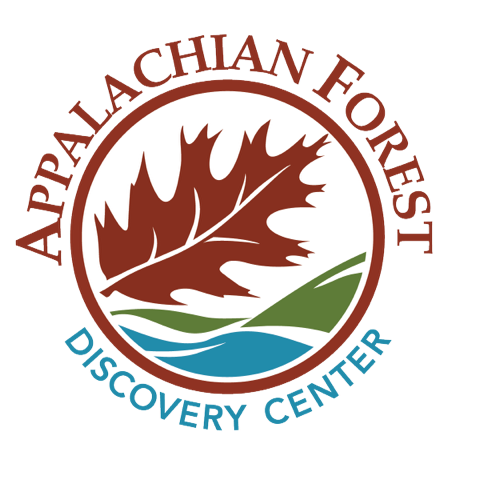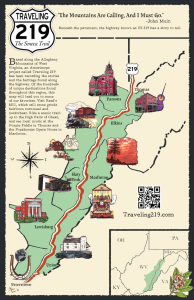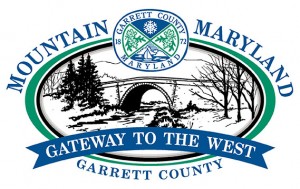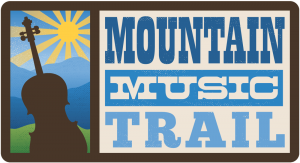Greenville
 This article is by guest contributor Jeffrey Kanode
This article is by guest contributor Jeffrey Kanode
The land is gentle and the road is narrow which leads up to the little town of Greenville, on state road 122, off of US 219.
In the center of town, beside the Greenville Post Office and across from a redbrick building which used to house the Bank of Greenville, the Centerville Presbyterian Church stands, as it has stood in some form, on this very spot, since 1854. For me, the little Presbyterian Church’s location is perfect, because as it sits in the middle of Greenville, it also stands right in the center of my experience, and my love, for Greenville.
Like so many mainline Protestant churches in rural, Bible belt locations where Christianity’s language still thrives, but with the non-denominational, independent, perhaps southern Baptist or Pentecostal accent, the little Presbyterian church in Greenville may be seen as merely a shadow of its former self. Numerically, I suppose, that is true. It certainly is not true, however, in spirit and in heart. In that way, this little church mirrors the little farm town it stands within. There have been better days, perhaps; there have been better decades, better eras for Greenville. For those who are left though, the spirit still soars, and the heart still beats with quiet strength, in lives lived amidst such unspoiled, unmolested, lovingly lived-upon and used, land.
I felt a little beaten-down and used -up by life when I first came to Greenville in the spring of the year. I was a pastor in need of a pulpit, I was a pastor in a search of a church to serve and love. The little church was in need of a pastor to come and preach for them; the little church was in need of a pastor to love, who would love them, too.
The people of Greenville mirror their land. Put in a way they would read as more appropriate, the people of Greenville mirror the land which is not their land, but which is the land entrusted to them for the seasons of their lives, in trust. That little church in Greenville, then, is a reflection of the people of the town, who forever reflect the land.
The green meadows and lush farm fields of Greenville invited me spiritually. As that good farmland produced life in every plowed field and in every wild hillside, so it seemed in my heart to be welcoming me, as if the good land invited me to come to know it, and discover resurrection within myself.
The people in the church were the same way. They were farmers, mostly, and if they themselves were not active farmers, they lived on tracts of land which once had been active farms. They didn’t let the numeric smallness of their crowd stifle their spirit and their hope. Their spirit and their hope intoxicated me from the first moment I entered the doors of their sanctuary. They were glad to see me. They were happy to get to know me. They trusted I would present the Gospel to them with vitality and faith. They greeted me with an already alive and vital faith.
I am sure winters in Greenville can be rough. When I turned off 219 in the spring of the year to journey to Greenville, winter was buried deep within the flowers and pollen of spring. If winter had been rough, winter was forgotten, or if not forgotten, the folks did not speak of it any longer. It was as if not speaking of snows and frosts robbed them of their power. They didn’t speak to me of their winter. They didn’t ask me about my winter, either. The struggles of my soul, the conflicts of my heart, the hard season I had survived, was mine to talk about if I wanted to, but I wasn’t asked to. Winter was over. We had all survived. Together we would journey through this spring, into the summer.
I was not employed by the little church in Greenville fulltime. They couldn’t afford a fulltime salary, and I was teaching school in western Greenbrier County during the week to make my living. I longed to live there with the people of Greenville. I longed to visit them in their homes, pray for them when they entered the hospital, and offer them Bible studies and old school “prayer meetings” midweek. In other words, I longed to be, truly their pastor.
Our reality was, though, I came on Sunday mornings and I gave them a sermon. I lead them in prayer over all the requests accumulated during the week from everyone’s lives and circle of family and friends. I was a guest preacher, not the pastor, and there is a huge difference. Gracious, loving, gentle and good as they were, the Presbyterians of Greenville accepted what I could offer in sermon and in prayer, in conversation and in compassion. Like the rains falling onto their fields and upon their cows, the folks regarded what happened in church as God’s gift to them. Sometimes the gift poured; sometimes it just trickled. They were always grateful and expressed their gratitude with joy for whatever God’s gift was from week to week.
The voices of Greenville…
Warren, whose family has lived on the same farmland for generations, a World War II veteran, spoke in hushed tones about having to sleep with the dead, and walk over them in foxholes in the Pacific. In those dark days he dreamed of walking the farmland of Greenville.[click here to read more about Warren and Judy Ellison]
His wife Judy, or Juliet as she is formally named, greeted me every day at the door of the church with quirky little witticisms which matched the spunkiness emanating from her tiny framed-body. “We believe in eating in this church, and so if you too believe in eating, you can stay after church and eat with us,” she said with formality contrasting the girlish spark from her eyes.
The silver haired lady often took to the pulpit before my sermon, imploring her sisters and brothers to do what they could to help support the Presbyterian Church’s global mission projects. “We are small, and Jesus started with a pretty small group too. This church has done great things for God. It can do great things again.” Then she would pass the bucket for people to give any loose change they had for the starving children of another continent.
Lew had lived on the farmlands of Greenville for about as long as Warren had, and though he never said much to me, or anyone else I ever overheard, his perpetual smile always said his piece.
The land changed with subtlety as the weeks rushed on. The people were touched with subtle change, as well.
As spring’s flirty nature burned into summer’s red heat, the elderly in the church grew more comfortable with me. Invitations to dinner after church became regular; I was graced to tour farm after farm, old nineteenth century farmhouse after old nineteenth century farmhouse. Each meal was different: cornbread and beans; ham and mashed potatoes; fresh garden tomatoes, buttermilk biscuits and fried chicken: As the Lord said about creation, it was all good. It was very good.
Each family was different: There were a few elderly couples with no children or grandchildren around the immediate area. There were a couple of large, extended families, with eighty-something year old patriarchs and matriarchs with middle aged children, twenty-something year old grandchildren, and toddler great-grandchildren: all living within a few country miles of one another, all eating at the same table on Sunday afternoon.
Each old house was different. Some families strove hard at preservation: “That hole above the mantle was the last shot fired in a cavalry skirmish during the Civil War;” others worked hard at modernity, if not postmodernity, in their living décor.
When autumn came to this Eden of a land, I observed autumn, and even winter’s shadow, cast upon the faces and spirits of many of the people, too. The foliage is gorgeous, glances from elderly, misty blue eyes seemed to say, but snow cold be coming in just days, over those ridges over there. I observed when winter finally did settle into this gracious land, when winter finally did descend upon this gracious people, they remained gracious. Their homes were still open to a adjutant, refugee pastor, and now hot cocoa by roaring fires in stone fireplaces took the place of ice tea in sunrooms or on patios.
I was graced by Greenville and the little Presbyterian Church there for two summers, two springs, and one winter. My sermons were probably not memorable. I was in the process of discovering healing in my own soul. Spiritually, mentally, and even physically, I was licking and dressing wounds while still attempting to live, to survive for a little while longer, hoping a thriving season would come upon me again. When that season would dawn in my heart, I knew it would only be a small fraction compared to the piece of heaven I had walked in, and lived in, in Greenville, Monroe County, just off of 219. I also knew any healing, any hope, any future I would grasp in the many seasons ahead, were thanks in no small part, to that land, to those people.
Kanode is a Methodist Minister at Ona, W.Va., in Putnam county. Previously he was an Associate Pastor at Lewisburg’s United Methodist Church. Click here to read his other article, Lewisburg Lovesong
Category: Family & Community, History, Lewisburg to Rich Creek

